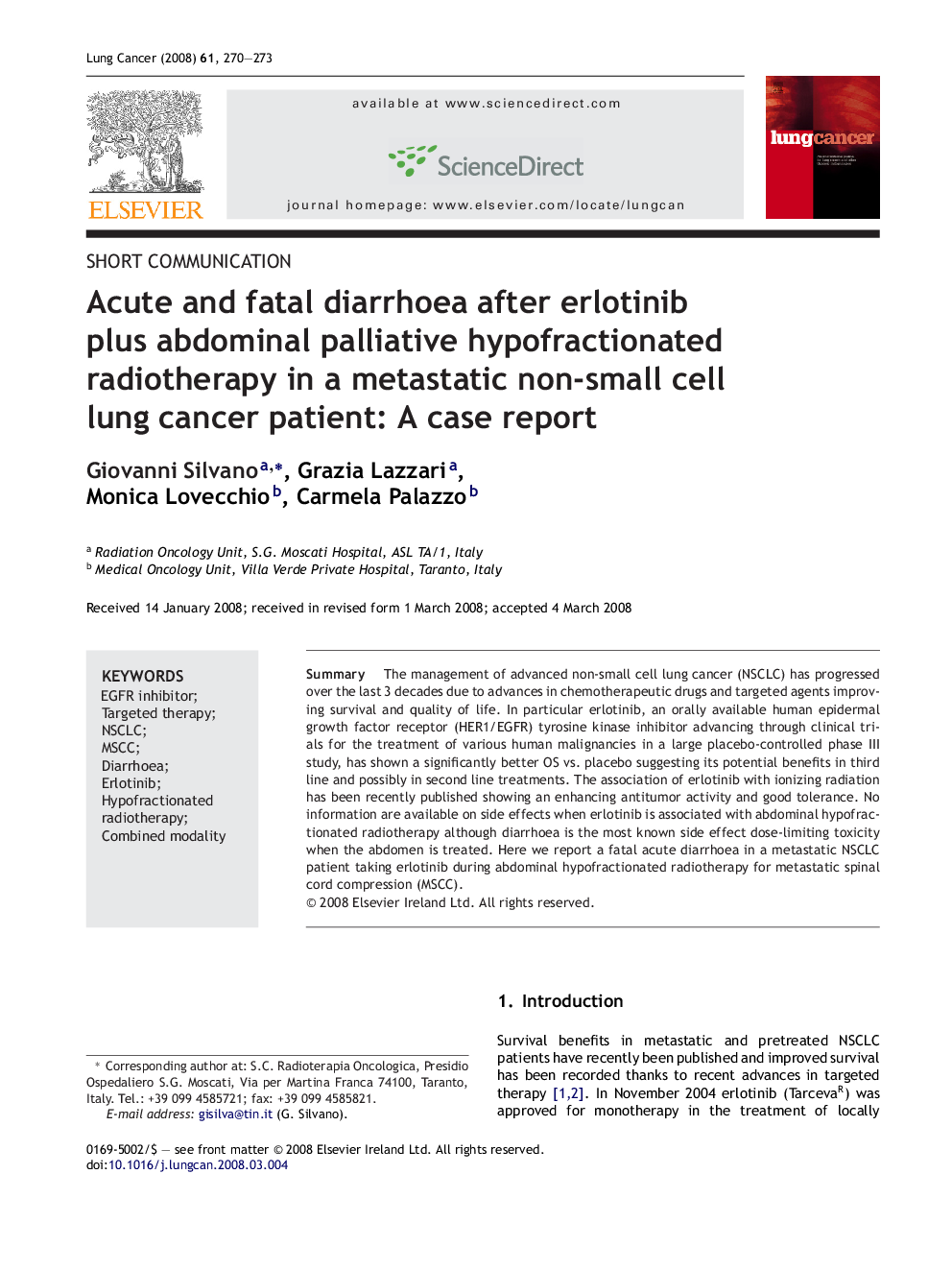| Article ID | Journal | Published Year | Pages | File Type |
|---|---|---|---|---|
| 2143171 | Lung Cancer | 2008 | 4 Pages |
SummaryThe management of advanced non-small cell lung cancer (NSCLC) has progressed over the last 3 decades due to advances in chemotherapeutic drugs and targeted agents improving survival and quality of life. In particular erlotinib, an orally available human epidermal growth factor receptor (HER1/EGFR) tyrosine kinase inhibitor advancing through clinical trials for the treatment of various human malignancies in a large placebo-controlled phase III study, has shown a significantly better OS vs. placebo suggesting its potential benefits in third line and possibly in second line treatments. The association of erlotinib with ionizing radiation has been recently published showing an enhancing antitumor activity and good tolerance. No information are available on side effects when erlotinib is associated with abdominal hypofractionated radiotherapy although diarrhoea is the most known side effect dose-limiting toxicity when the abdomen is treated. Here we report a fatal acute diarrhoea in a metastatic NSCLC patient taking erlotinib during abdominal hypofractionated radiotherapy for metastatic spinal cord compression (MSCC).
